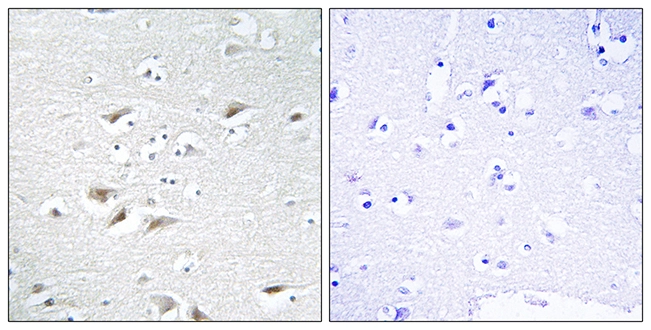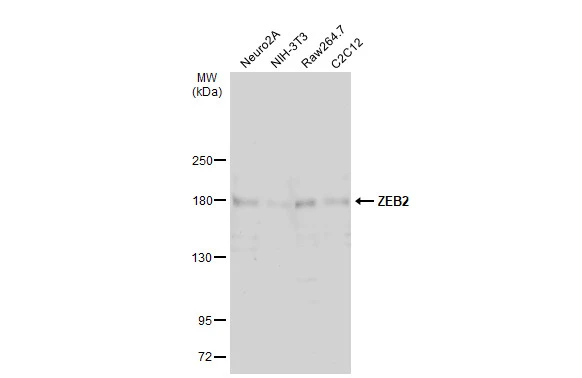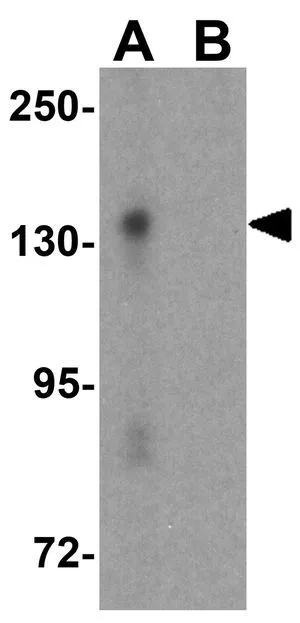
WB analysis of EL4 cell lysate in (A) the absence and (B) the presence of blocking peptide using GTX85180 ZEB2 antibody. Working concentration : 1 μg/ml
ZEB2 antibody
GTX85180
ApplicationsImmunoFluorescence, Western Blot, ELISA, ImmunoCytoChemistry
Product group Antibodies
ReactivityHuman, Mouse, Rat
TargetZEB2
Overview
- SupplierGeneTex
- Product NameZEB2 antibody
- Delivery Days Customer9
- Application Supplier NoteWB: 1 - 2 microg/mL. ICC/IF: 20 microg/mL. *Optimal dilutions/concentrations should be determined by the researcher.Not tested in other applications.
- ApplicationsImmunoFluorescence, Western Blot, ELISA, ImmunoCytoChemistry
- CertificationResearch Use Only
- ClonalityPolyclonal
- Concentration1 mg/ml
- ConjugateUnconjugated
- Gene ID9839
- Target nameZEB2
- Target descriptionzinc finger E-box binding homeobox 2
- Target synonymsHSPC082, SIP-1, SIP1, SMADIP1, ZFHX1B, zinc finger E-box-binding homeobox 2, SMAD interacting protein 1, Smad-interacting protein 1, zinc finger homeobox 1b
- HostRabbit
- IsotypeIgG
- Protein IDO60315
- Protein NameZinc finger E-box-binding homeobox 2
- Scientific DescriptionZEB2, initially identified as Smad interacting-protein 1, is normally located in the nucleus and functions as a DNA-binding transcriptional repressor that interacts with activated SMADs. Like the homologous ZEB1, ZEB2 inhibits the transcription of the E-cadherin gene and induces epithelial-mesenchymal transition, a genetic program controlling cell migration during embryonic development and wound healing, in vitro. ZEB2 can also protect cells from DNA damage-induced apoptosis, suggesting that its expression may contribute to tumor progression. Recent evidence has shown that ZEB2 is often observed in the cytoplasm in numerous cancer tissues, indicating that its localization may be regulated in normal and tumor tissues (3). Mutations in this gene are also associated with Hirschsprung disease/Mowat-Wilson syndrome.
- ReactivityHuman, Mouse, Rat
- Storage Instruction-20°C or -80°C,2°C to 8°C
- UNSPSC41116161
References
- Asparaginyl endopeptidase promotes the invasion and metastasis of gastric cancer through modulating epithelial-to-mesenchymal transition and analysis of their phosphorylation signaling pathways. Cui Y et al., 2016 Jun 7, OncotargetRead this paper


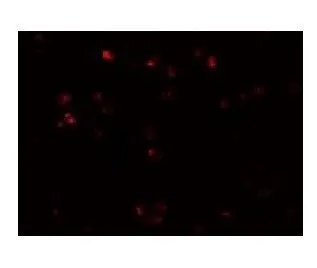
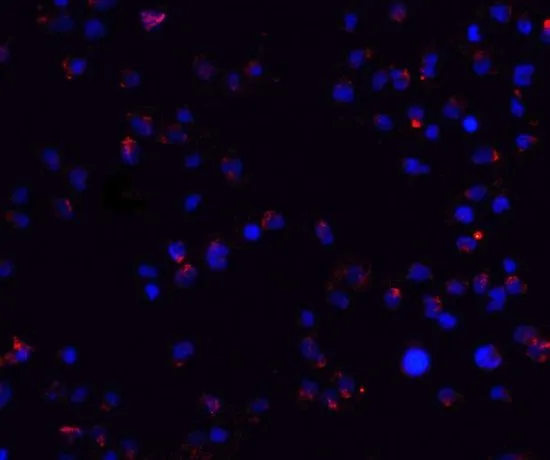
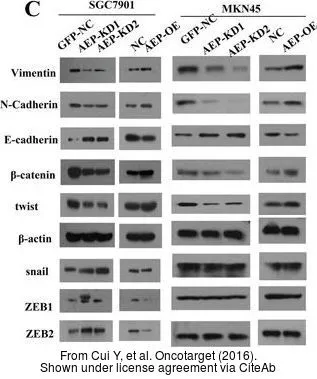
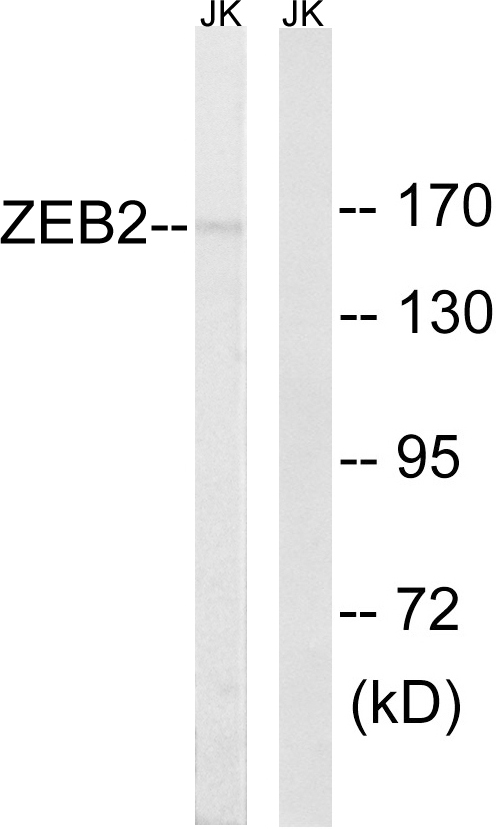





![IHC-P analysis of human kidney carcinoma tissue using GTX00672 ZEB2 antibody [OTI1E12]. Antigen retrieval : Heat induced epitope retrieval by 10mM citric buffer, pH6.0, 120oC for 3min](https://www.genetex.com/upload/website/prouct_img/normal/GTX00672/GTX00672_20190923_IHC-P_2_w_23053121_844.webp)
